The best Django hosting providers provide the speeds and scalability needed for developers to effectively deploy Django projects. The top recommended Django hosting provider is Hostinger. It features fast servers, pre-installed Python and Django and full root access.
Django hosting is a specialized hosting service designed to support websites and applications built with Django. Django is a high-level Python web framework that simplifies web development. It uses a model-template-view (MTV) architectural pattern and provides reusable components that eliminate repetitive tasks during the building process. Django hosts ensure full compatibility with Python, provide essential server resources, and offer tools for seamless Django deployment.
5 key Django hosting requirements are Python 3.x support, WSGI or ASGI compatibility, a database like PostgreSQL or MySQL, virtual environment support, and SSH access. There are 4 main Django hosting options: Django shared hosting, Django VPS (Virtual Private Server) hosting, Django cloud hosting, and Django managed hosting.
Django hosting costs range from $2 to $53.99 per month. Cheap Django hosting is priced below $10 per month and includes essential features like root access, SSD storage, and Python 3.x support. Free Django hosting options like PythonAnywhere are available but come with resource limitations and reduced performance.
To choose the best Django host, ensure it provides fast speeds, reliable uptime, and meets Django’s 5 key hosting requirements. Monitor the speed of your Django hosting using a host tracker tool. The process of installing Django on your hosting server varies depending on the hosting type used. Shared or managed Django plans offer quick setup via a control panel while unmanaged Django plans require manual installation.
Top Django Hosting Services
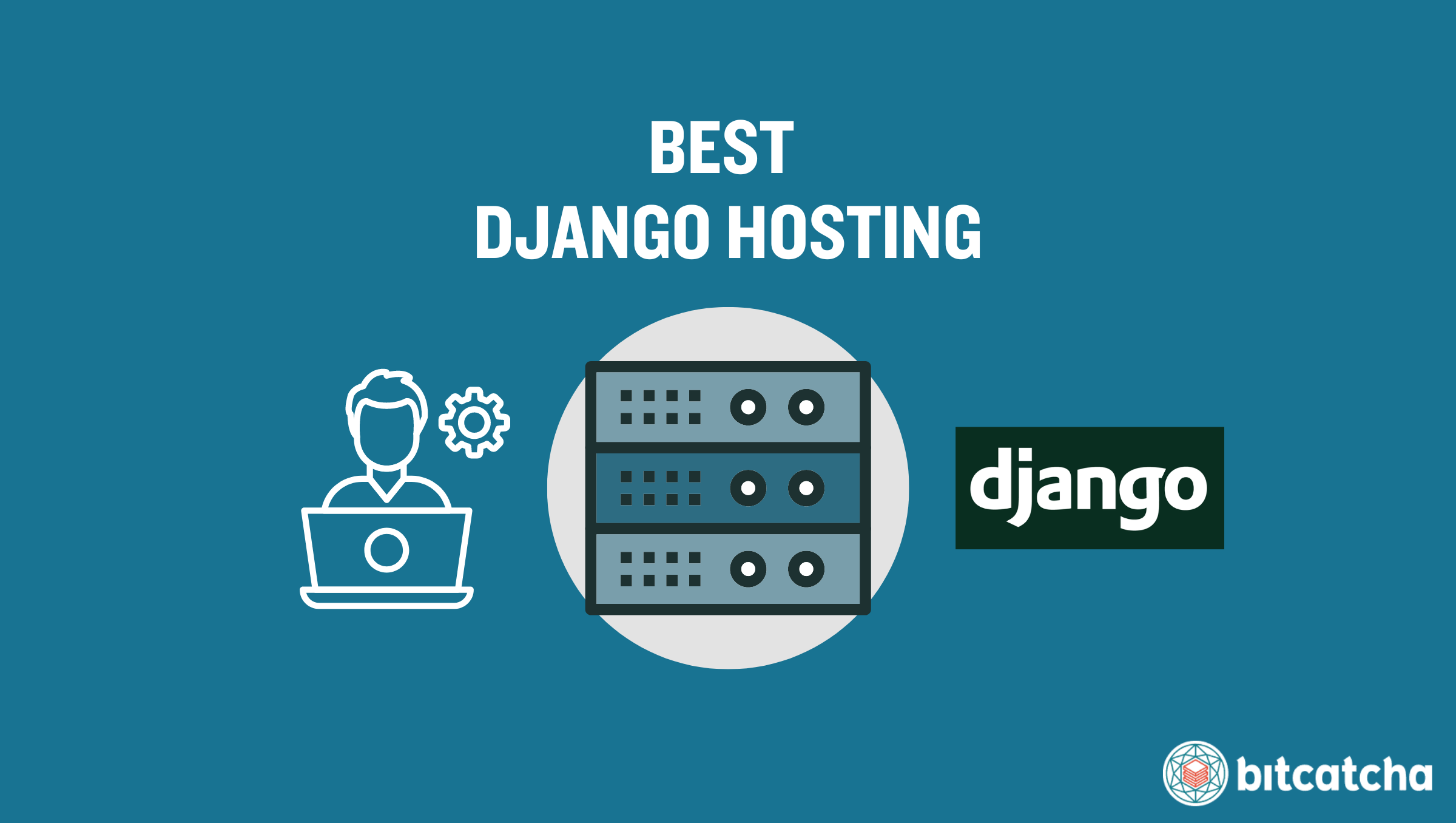

1. Hostinger
https://www.hostinger.com/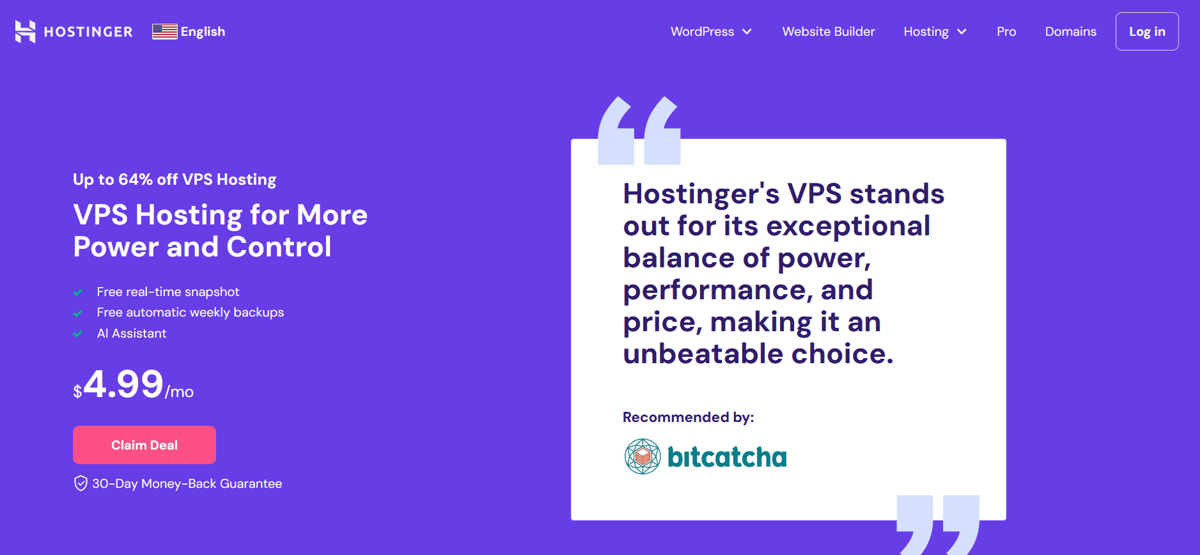
Hostinger offers affordable VPS hosting plans optimized for Django. KVM 1 is their entry-level plan priced at $4.99 per month. It includes 1 vCPU core, 4 GB RAM, 50 GB NVMe disk space, and 4 TB of bandwidth. Python and Django come pre-installed on their VPS plans, which makes it easy to set up a Django environment with Ubuntu and OpenLiteSpeed.
Hostinger provides a browser-based terminal for managing your Django application without additional installations. You also get full root access for server customization, and an AI assistant for handling tasks like firewall configuration and VPS template installation. Learn more in our Hostinger review.
What Are the Pros and Cons of Hostinger Django Hosting?
Pros
- Pre-installed Python and Django for quick setup
- Full root access for complete customization
- AI assistant for easier management
- 1-click Django environment setup
Cons
- Higher renewal prices after the initial term

2. TMDHosting
https://www.tmdhosting.com/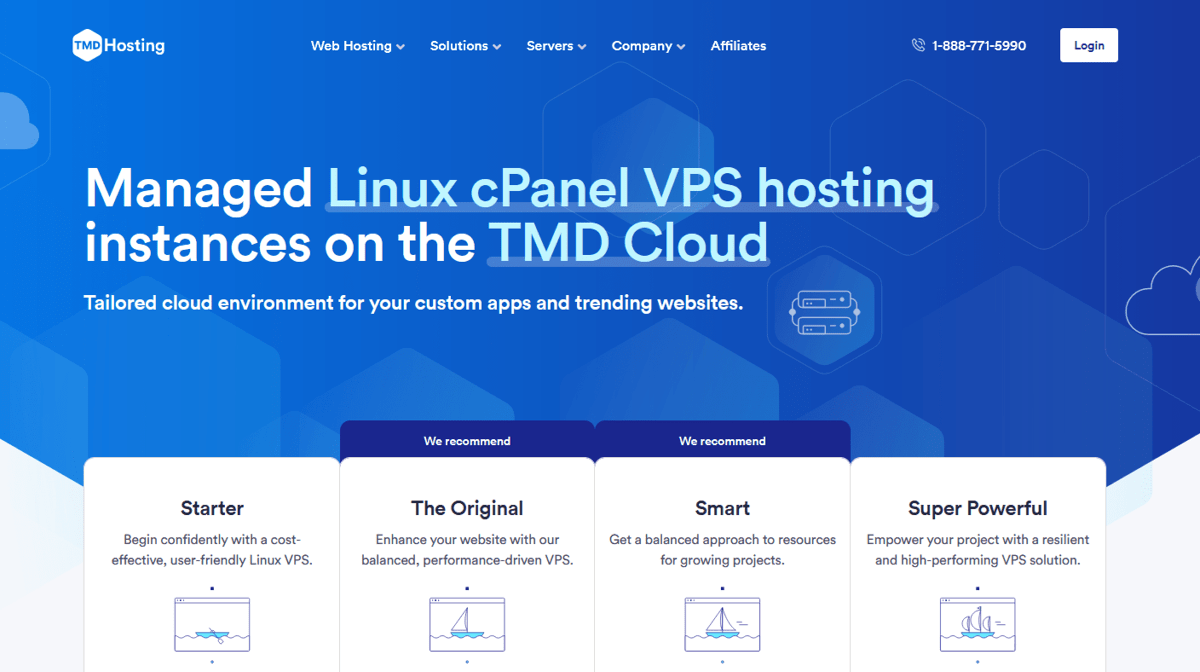
TMDHosting provides managed VPS hosting tailored for Django developers. Their Starter plan is priced at $39.99 per month. It includes 2 CPU cores, 2 GB DDR4 RAM, 60 GB SSD space, and 2 TB bandwidth. Users are able to install Django quickly with their 1-click Django installer. The platform also offers free Django plugin installation and transfer services.
TMDHosting’s fully managed VPS lets users benefit from automated Django updates, a cPanel/WHM control panel, and full SSH access for advanced management. Their infrastructure is designed for speed. Guaranteed resources and daily optimizations are handled by their Site Reliability Engineers. TMDHosting includes daily backups, free SSL certificates, and a dedicated IP to ensure your Django application runs efficiently and securely. Learn more in our TMDHosting review.
What Are the Pros and Cons of TMDHosting Django Hosting?
Pros
- Fully managed hosting with automated updates
- 1-click Django installation and free plugin installation
- Full SSH access and cPanel/WHM control panel
- 1-click Django environment setup
Cons
- Higher starting price compared to other VPS providers

3. Scalahosting
https://www.scalahosting.com/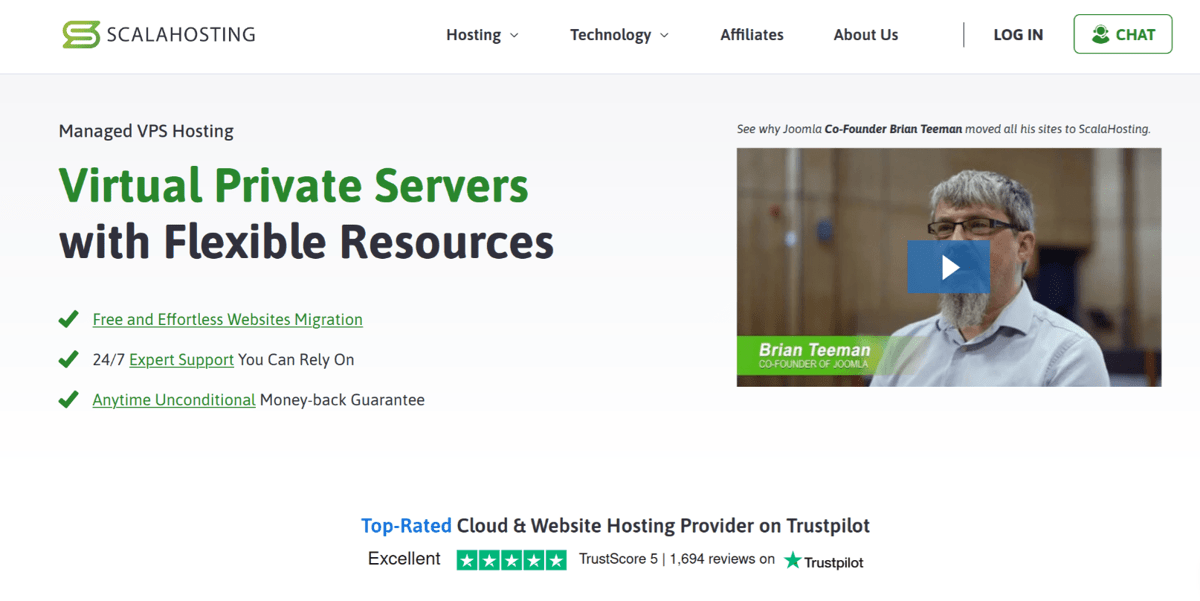
ScalaHosting offers managed VPS plans equipped with generous resources and powerful performance. Their Build #1 plan is their entry-level plan priced at $29.95 per month. It features 2 CPU cores, 4 GB RAM, 50 GB NVMe SSD storage, and unmetered bandwidth. ScalaHosting also provides root access and a user-friendly SPanel control panel to simplify server management.
All plans include automatic offsite backups, free SSL certificates, and 24/7 real-time cybersecurity. Their managed VPS plans also come with SShield security, which blocks 99.97% of web attacks. Support for OpenLiteSpeed caching guarantees faster performance for Django sites. Learn more in our ScalaHosting review.
What Are the Pros and Cons of Scalahosting Django Hosting?
Pros
- Flexible, scalable resources with unmetered bandwidth
- Root access with SPanel or cPanel options
- OpenLiteSpeed caching for enhanced speed
- 1-click Django environment setup
Cons
- Higher starting price compared to other entry-level VPS providers
- Need to pay for cPanel

4. DreamHost
https://www.dreamhost.com/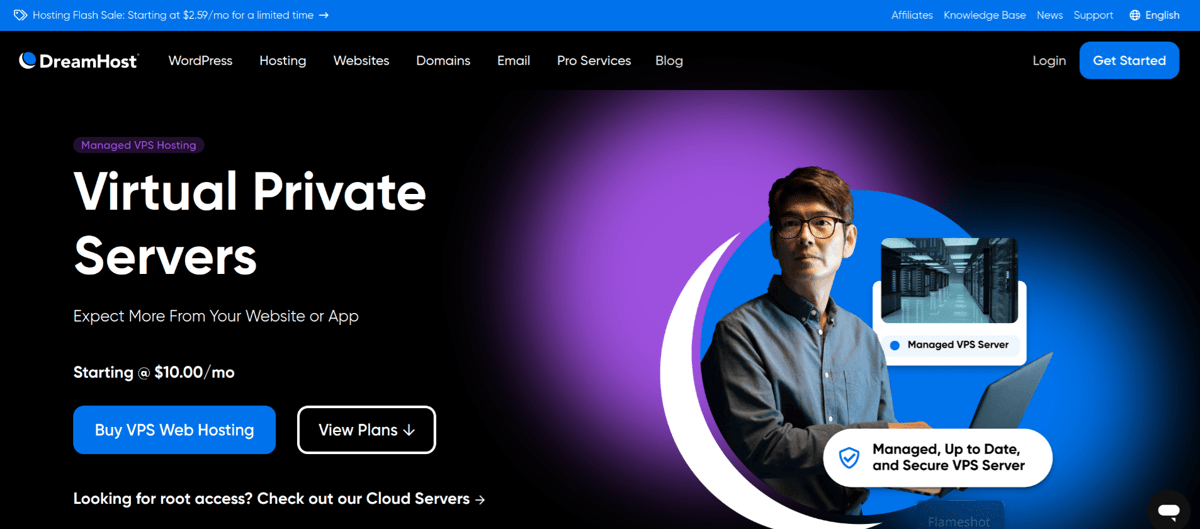
DreamHost offers scalable VPS hosting plans that are highly compatible with Django. Their VPS Business plan starts at $10 per month. It includes 2 GB RAM, 60 GB SSD storage, and unlimited traffic. All VPS plans come with unlimited websites, free SSL certificates, and unlimited email accounts.
DreamHost provides root access and also offers both managed and unmanaged VPS options. A custom control panel, SSD storage, and the ability to scale resources quickly ensure your Django hosting is powerful and flexible. Learn more in our DreamHost review.
What Are the Pros and Cons of DreamHost Django Hosting?
Pros
- Root access for full server control
- Managed and unmanaged options available
- Custom control panel for easy server management
Cons
- No Windows VPS hosting options

5. A2 Hosting
https://www.a2hosting.com/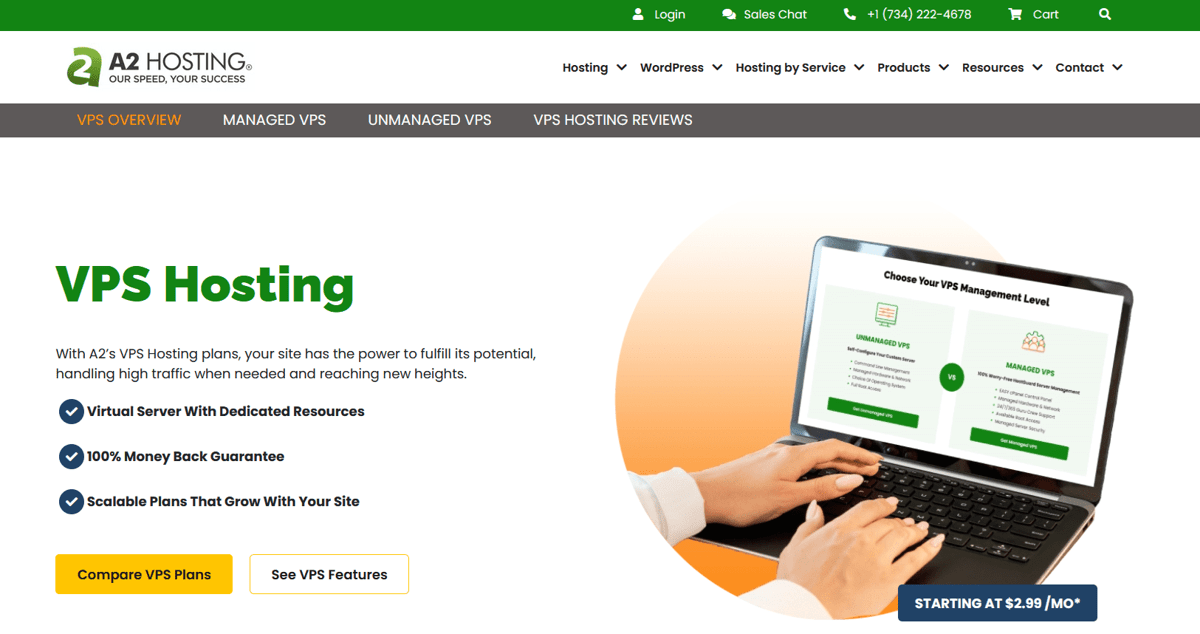
A2 Hosting offers VPS plans for Django hosting with high-performance Turbo Servers. This technology provides up to 20x faster speeds compared to standard setups. Their entry-level Launch 1 plan starts at $4.99 per month. It includes 1 CPU core, 1 GB RAM, 25 GB SSD storage, and 0.5 TB transfer. A2 Hosting’s VPS plans come with root access and a choice between managed or unmanaged options to give which makes it flexible for developers of all levels.
Other benefits include a 1-click Django installer, pre-configured server environments, and comprehensive developer documentation. Their Turbo Servers also boast AMD EPYC processors and NVMe storage for optimal performance. This allows it to handle more traffic more reliably and helps deliver faster page loads. Learn more in our A2 Hosting review.
What Are the Pros and Cons of A2 Hosting Django Hosting?
Pros
- 1-click Django installation for fast setup
- Managed and unmanaged options available
- Turbo Servers with up to 20x faster performance
- Root access for full server control
- Extensive documentation and developer-friendly tools
Cons
- Limited resources on the entry-level plan

6. HostGator
https://www.hostgator.com/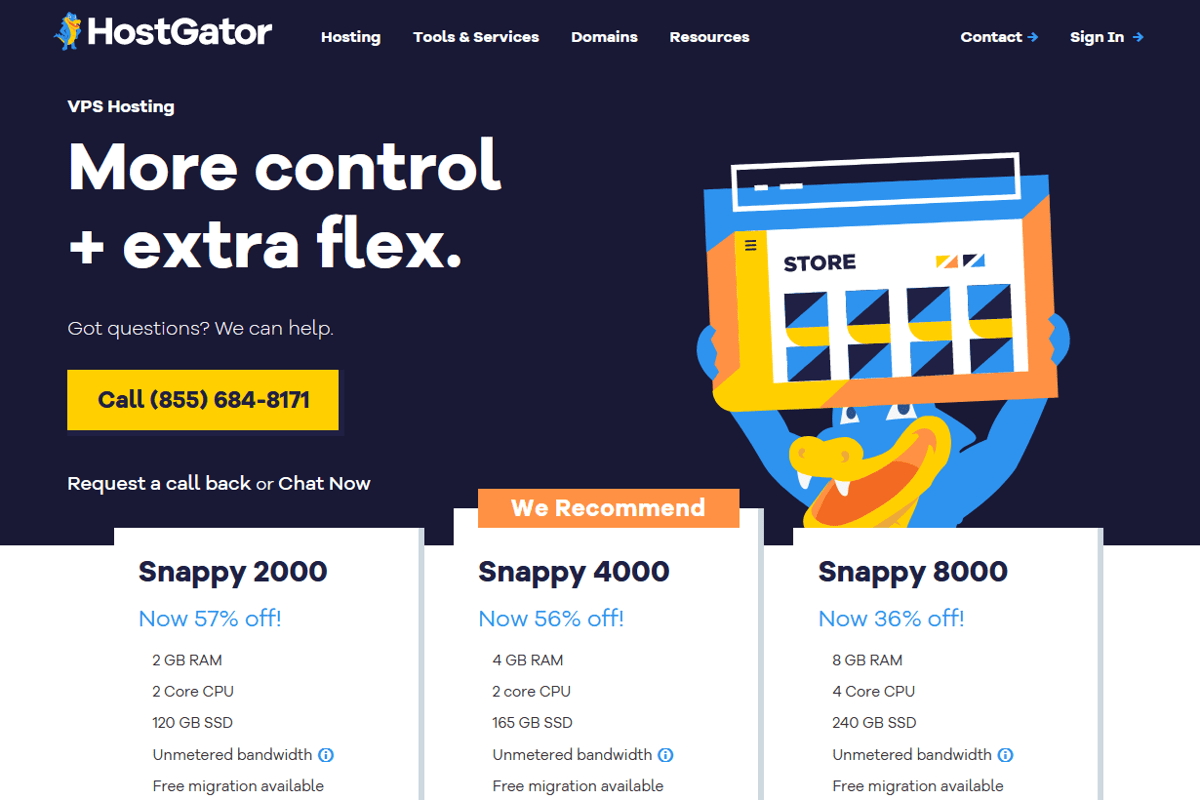
HostGator offers next-gen VPS hosting optimized for high performance with NVMe storage and AMD EPYC servers. Their Snappy 2000 plan starts at $34.99 per month and includes 2 vCPU cores, 4 GB DDR5 RAM, 100 GB NVMe storage, and unmetered bandwidth. Root access allows full customization of the server environment.
HostGator’s VPS plans come with advanced features like DDoS protection, free migration, and live kernel patching. Users also benefit from a custom HostGator control panel and a 99.9% uptime guarantee. Learn more in our HostGator review.
What Are the Pros and Cons of HostGator Django Hosting?
Pros
- High-performance AMD EPYC servers with NVMe storage
- Root access for full server customization
Cons
- Higher starting price compared to entry-level VPS providers

7. IONOS
https://www.ionos.com/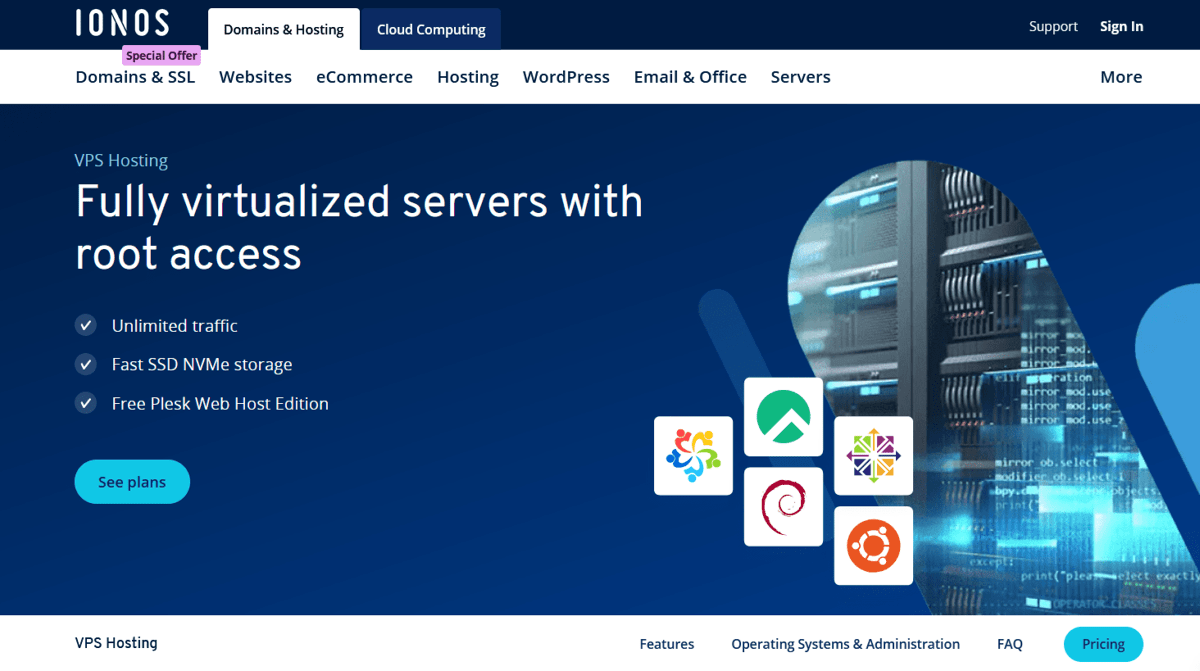
IONOS stands out for its industry-leading network performance, and offers up to 1 Gbit/s speeds across all VPS plans. Their VPS Linux XS plan starts at just $2 per month and is ideal for pairing with Django. It includes 1 vCore, 1 GB RAM, and 10 GB NVMe storage. All plans provide unlimited traffic and come with the Plesk Web Host Edition control panel at no extra cost.
IONOS ensures top-tier security with ISO-certified data centers and offers flexibility by allowing users to select from data center locations in the US, Germany, the UK, or Spain. Django developers benefit from fast SSD storage, scalable resources, and support for multiple Linux operating systems like Ubuntu, Debian, AlmaLinux, and Rocky Linux. Learn more in our IONOS review.
What Are the Pros and Cons of IONOS Django Hosting?
Pros
- Affordable starting price
- Full root access and free Plesk Web Host Edition
- Unlimited traffic with speeds up to 1 Gbit/s
- NVMe SSD storage for faster data access
- Scalable resources and multiple data center options
Cons
- Limited resources on lower-tier plans

8. DigitalOcean
https://www.digitalocean.com/
DigitalOcean offers a wide range of VPS hosting options for Django. Their Basic Droplets is their most affordable tier starting at $4 per month or $0.00595 per hour. The entry-level plan features 1 vCPU, 512 MiB RAM, 10 GiB SSD storage, and 500 GiB transfer, ideal for smaller Django applications. Their Premium Droplets provide faster performance using NVMe SSD storage and the latest generation of CPUs.
DigitalOcean provides full root access across all VPS plans, as well as 1-click installations for popular software and extensive documentation. Cloudways is also available as an option for those looking for a managed solution.
What Are the Pros and Cons of DigitalOcean Django Hosting?
Pros
- Flexible scaling options with pay-as-you-go pricing
- Full root access for complete server control
- NVMe SSD storage and multiple CPU options for enhanced performance
- Dedicated and shared CPU options to match various workloads
Cons
- Managed hosting requires using Cloudways at an additional cost
- Advanced features may require more technical expertise

9. Heroku
https://www.heroku.com/
Heroku provides cloud-based VPS hosting options through their Dynos, which are lightweight Linux containers ideal for Django applications. They have flexible pricing tiers and their Eco dynos start at $5 per month or $0.005/hour. The dynos come with 512MB RAM and 2TB of bandwidth, which make them well-suited for small to mid-sized Django applications. Advanced options are available for mission-critical Django apps needing high availability and performance.
Heroku’s managed environment takes care of scaling, updates, and security, which makes it ideal for developers who prefer less hands-on server management. Features like 1-click deployment, integration with Git, and comprehensive documentation enable developers to easily launch and manage Django projects.
What Are the Pros and Cons of Heroku Django Hosting?
Pros
- Flexible pricing based on application size and needs
- Managed environment with automatic scaling and updates
- Easy 1-click deployment with Git integration
- Strong documentation and built-in security features
Cons
- Higher cost for advanced apps requiring more resources

10. PythonAnywhere
https://www.pythonanywhere.com/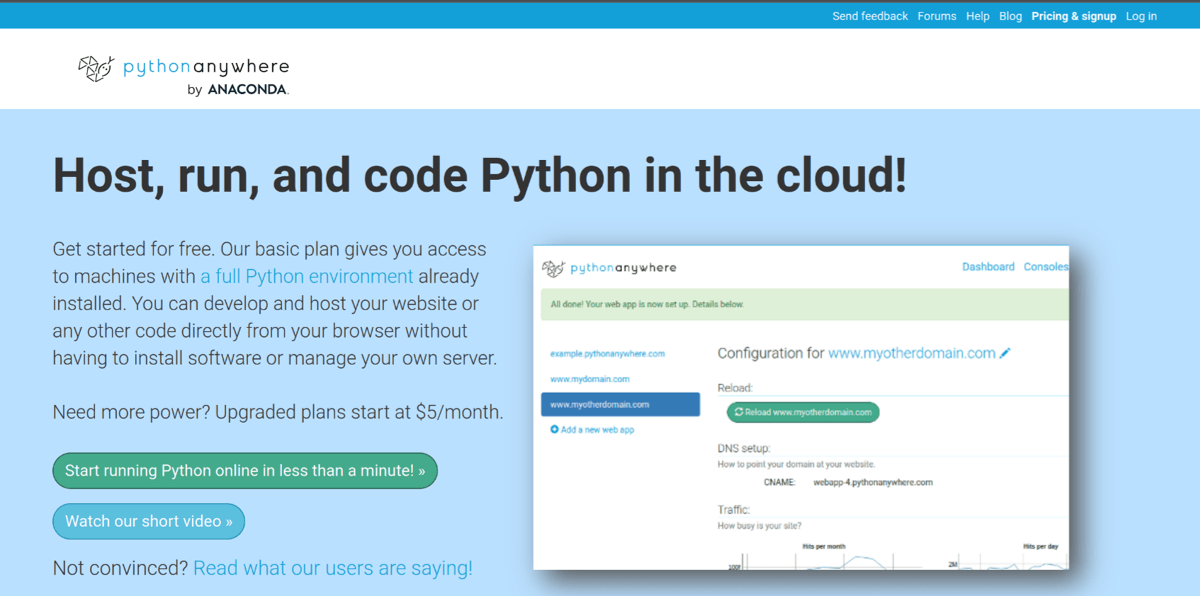
PythonAnywhere offers a cloud-based hosting solution suitable for Django apps. The platform is beginner-friendly and provides flexible pricing plans starting with their Hacker plan at $5 per month. It includes 1 web app on a custom domain, 2,000 CPU-seconds per day, and 1 GB disk space. They also have a free plan that allows users to get started with basic Django hosting on a PythonAnywhere subdomain.
PythonAnywhere includes full SSH access for paid plans, unlimited in-browser Python consoles, scheduled tasks, and support for IPython/Jupyter notebooks. Users are able to test their Django projects with minimal risk thanks to their no-hassle 30-day money-back guarantee.
What Are the Pros and Cons of PythonAnywhere Django Hosting?
Pros
- Affordable entry-level plans
- Python IDE in-browser with unlimited consoles
- Full SSH access and scheduled tasks on paid plans
- Supports IPython/Jupyter notebooks for interactive development
- Customizable plans with scalable resources
Cons
- CPU-seconds limit restrict high-traffic applications on lower-tier plans
What Is Django Hosting?
Django hosting is a type of specialized web hosting that provides the necessary environment to run websites and applications built using the Django framework.
Django hosting is best understood as a subset of developer hosting that specifically targets developers looking to streamline the deployment process of their Django projects. Django hosting therefore provides web servers that are configured to support the unique needs of Django and to help developers unleash its full potential. Django’s unique characteristics and features directly impact hosting requirements because Django hosting providers must support Python environments and offer compatibility with specific stacks and versions of databases and servers. Django’s emphasis on security and reliability also demands robust and flexible hosting solutions that can accommodate growing web applications.
What Is Django?
Django is a high-level Python web framework designed for building web applications. Django is a popular choice with developers for its ability to simplify the development process by providing reusable components that remove repetitive tasks and allow their focus back on building features. Django follows the model-template-view (MTV) architectural pattern and provides built-in features for user authentication, content administration, and database schema migrations. Django’s core functionality also comes with built-in robust security features that protect web apps from common vulnerabilities.
Being a Python framework, Django is also supported by most Python hosting providers along with other frameworks like Flask, Pyramid, and Tornado.
What Are the Django Hosting Requirements?
There are 5 key Django hosting requirements. The first is a web server with Python installed. It must support Python 3.x versions to run Django applications. The second is the need for WSGI (Web Server Gateway Interface) or ASGI (Asynchronous Server Gateway Interface) support, which allows Django to communicate with the web server effectively. The third is a compatible database such as PostgreSQL, MySQL, or SQLite, to manage data storage for the application. The fourth is virtual environment support, which helps manage project dependencies and prevent conflicts between libraries. The fifth is SSH (Secure Shell) access. This provides secure remote management which is essential for deploying and maintaining Django applications efficiently.
What Are My Options for Django Hosting?
You have 4 options for Django hosting. The first option is Django shared hosting, where multiple websites share the same server resources (CPU, memory, storage). It’s the most affordable option but it’s possible for performance to be affected if other sites on the server overuse their resources.
The second option is Django Virtual Private Servers, where a single physical server is divided into isolated virtual environments. Developers get dedicated resources and more control. This makes it suitable for medium-sized Django projects that require stronger performance and customization.
The third option is Django cloud hosting, which uses a network of virtual servers on multiple physical machines. This allows you to easily scale resources up or down as needed for your project. It’s the best hosting for fluctuating demands.
The fourth option is managed Django hosting, where the hosting provider takes care of server management, security, backups, and updates. This allows developers to focus entirely on building and maintaining their Django applications without worrying about server maintenance.
How Much Does Django Hosting Cost?
Django hosting costs $2 to $53.99 per month depending on the hosting type and provider. This price range includes shared, VPS, and cloud hosting options for Django applications. Shared hosting is the most affordable type of Django hosting. VPS and cloud hosting are on the more expensive end of Django hosting.
What Makes a Cheap Django Host?
Cheap Django hosting costs below $10 per month. This low price tag still provides essential features like root access, support for Python 3.x, SSD (Solid State Drives) or NVMe (Non-Volatile Memory Express) storage for fast performance, and Django-specific support. These features ensure that even budget-friendly hosting plans efficiently handle Django applications.
Are There Free Django Hosting?
Yes, there are platforms that offer free Django hosting, such as PythonAnywhere. Keep in mind that free hosting generally comes with drawbacks like restricted resources, as well as limited performance and support. We don’t recommend free Django hosting for production websites or larger projects due to these constraints. Paid Django hosting provides better performance, security, and scalability, which ensures that your Django application runs smoothly.
How Do I Choose the Best Django Host?
To choose the best Django host, research and check the web host’s offerings to ensure it is able to provide fast server speeds, reliable uptime, and scalability. Do this by reading reviews and checking each host’s fine print to check you are getting enough server resources like RAM, storage, and bandwidth to meet your particular Django project’s needs. Also remember to check if the web host meets the 5 key hosting requirements of Django hosting (support for Python 3.x, support for WSGI or ASGI, support for compatible databases, virtual environment support and SSH access).
How Can I Monitor The Server Speed Of My Django Hosting?
You can monitor the speed of your Django hosting by using a host tracker such as UptimeRobot, Pingdom, GTmetrix, or Bitcatcha Host Tracker. These tools measure and log your server response time from different regions and alert you when serious slowdowns occur. Our Bitcatcha Host Tracker retains historical data and sends monthly reports to help you confirm whether your chosen Django host maintains long-term performance standards.
How Do I Install Django on My Hosting Server?
The process to install Django on your hosting server is determined by your type of hosting plan. Django is installed on shared or managed hosting plans by using the control panel’s quick setup feature or with help from support. Django installation for unmanaged hosting plans is done through the distribution’s package installation tools, such as apt for Ubuntu or yum for CentOS.
Most reputable Django hosting providers offer detailed documentation with step-by-step instructions to guide you through the installation process.
What Is Django CMS Hosting?
Django CMS hosting is a type of web hosting designed to support websites built using Django CMS, an open-source Content Management System (CMS) based on the Django framework. A CMS allows users to easily create, manage, and modify digital content on a website. The Django CMS is based on the Django web framework and allows developers to easily work with rich content and media, and integrate with third-party apps, such as marketing and Customer Relation Management (CRM) software. Django CMS hosting specializes in supporting this setup. It ensures scalability, performance optimization, and security for these content-heavy websites built through Django CMS.
Which Is the Best Django Hosting Provider?
The best Django hosting provider offers the essential features needed to run Django applications efficiently. This includes Django compatibility, speed performance, reliability, security, scalability, and tech support that’s knowledgeable about Python-based frameworks. Your exact choice depends on your project’s scale and specific needs.
Consider factors like root access, support for Python 3.x, WSGI or ASGI compatibility, and databases like PostgreSQL or MySQL. Also look for hosts that offer strong security measures, scalability options, and responsive customer support.
Our top recommendation for Django hosting is Hostinger. It offers robust performance with SSD storage, Python support, and root access at affordable prices. Their VPS plans are ideal for Django projects as they provide the flexibility and resources needed for small to large-scale applications.
| Specifications | Hostinger | TMDHosting | ScalaHosting | DreamHost | A2 Hosting | HostGator | IONOS | DigitalOcean | Heroku | PhytonAnywhere |
|---|---|---|---|---|---|---|---|---|---|---|
| Plan | KVM 1 | Starter | Build #1 | VPS Business | Launch 1 | Hatchling Plan | Essential | Basic | Essential 0 | Hacker |
| Storage | 50 GB | 60 GB | 50 GB | 60 GB | 25 GB | 10 GB | 10 GB | 25 GB | 1 GB | 1 GB |
| Bandwidth | 4 TB | 2 TB | Unmetered | Unmetered | Unlimited | Unmetered | Unmetered | 1 TB | Limited | 1GB/month |
| CPU cores | 1 | 2 | 2 | 1 | 1 | 1 | 1 | 1 | 1 | 1 |
| RAM | 4 GB | 2 GB | 4 GB | 1 GB | 1 GB | 2 GB | 1 GB | 1 GB | 512 MB | 512 MB |
| Root access | Yes | Yes | Yes | Yes | Yes | Yes | Yes | Yes | No | No |
| SSH | Yes | Yes | Yes | Yes | Yes | Yes | Yes | Yes | Yes | Yes |
| Uptime guarantee | 99.90% | 99.90% | 99.90% | 100% | 99.90% | 99.90% | 99.90% | 99.99% | Always ON | 99.90% |
| Free backup | Yes | Yes | Yes | Yes | Yes | Yes | Yes | Yes | No | No (Manual) |
| Price (US$ /month) | $4.99 | $39.99 | $29.95 | $10.00 | $4.99 | $3.75 | $4.00 | $6.00 | $5.00 | $5.00 |
| See all features |
